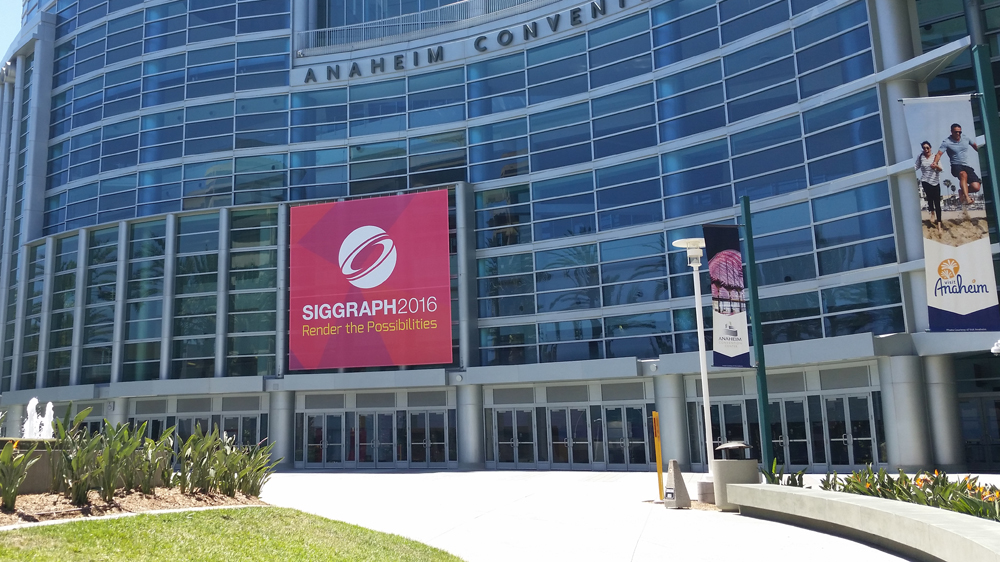
Last month I had the pleasure to attend the conferences SAP 2016, an international conference on applied perception, and SIGGRAPH 2016, the top conference for Computer Graphics and Interactive Techniques, in Anaheim, USA. Both conferences were co-located to promote the communication between the core perception and computer graphics communities.
At SAP I presented my paper “Emotion Recognition in Autism Spectrum Disorder: Does Stylization Help?” That work investigates how visual abstraction affects facial emotion recognition in individuals with autism compared to their neuro-typically developed peers. We also address the question whether visual abstraction can reduce the mental load on these individuals in order to help them categorize different emotions.

We found, that individuals with autism did not show any preferences regarding rendering style and abstraction level. This can be understood as a lacking “abstracted faces effect”, which indicates the atypical processing of facial emotional stimuli, confirming what has been proposed in related literature.
Attending SIGGRAPH afterwards, I had the chance not only to hear great talks about novel developments in computer graphics, but also of leading companies in this field talking about how they use what has been developed in academia. A hot topic this year was “Virtual and Augmented Reality”, with a whole exhibition area dedicated solemnly to real-time immersive applications for health, education, design, and gaming.
Just get some impression from SIGGRAPH are available via Flickr on
https://www.flickr.com/photos/siggraphconferences!
